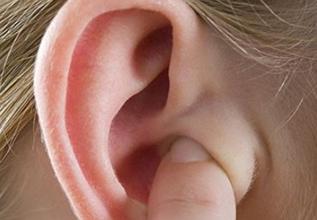Fluid draining from the ear can be a major cause for concern – especially if you are unsure of what’s causing it. Also known as ear discharge, ear drainage is not something that should be taken lightly since it could be signs of a more serious condition. The medical term for drainage of the ear is Otorrhea and there are several different reasons for this condition.
Causes
Here are a few causes of Otorrhea to help you understand when you should be concerned.
Swimmer’s Ear
 Swimmer’s ear is a common infection that can be caused when water gets trapped in the inner ear canal. Bacteria in the ear canal increases, causing an infection. It has been associated with swimmers because it’s can be caused by swimming in polluted water. It can also be caused by a cut inside the ear or a skin conditions such as eczema that has affected the inner ear.
Swimmer’s ear is a common infection that can be caused when water gets trapped in the inner ear canal. Bacteria in the ear canal increases, causing an infection. It has been associated with swimmers because it’s can be caused by swimming in polluted water. It can also be caused by a cut inside the ear or a skin conditions such as eczema that has affected the inner ear.
Symptoms include a yellow, pus – like discharge that has a very foul odor. The ear becomes very itchy and painful if the earlobe is pulled. If the symptoms become severe, hearing loss could be experienced.
A doctor will examine the ears to be sure the ear drum is not damaged. Once the condition is diagnosed, the doctor will prescribe antibiotic drops to kill the bacteria.
Swimmer’s ear will usually clear up within 7-10 days. A follow up appointment may be necessary to make sure the infection is completely gone and hasn’t spread.
Excessive Ear Wax
Ear wax is necessary in order to protect and coat the inner ear canal. It will normally work its way out of the ears – but sometimes we can produce an overabundance of wax. Excessive ear wax is the most common cause of the discharge for ear.
Excessive amounts of ear wax usually means that there is a blockage in the inner ear. Don’t try to remove the wax yourself – you should see a doctor. Using a cotton swab or other objects could cause the wax to become lodged further inside the ear — setting you up for an ear infection.
Head Injury
A head injury is a serious condition that can cause ear drainage. Usually drainage from this type of injury is blood or a clear fluid coming out of the ear. The clear fluid could be an indication that there is damage to the brain, spine or skull. This is extremely serious and immediate medical attention is needed. Someone who takes blood-thinners or aspirin may also experience blood draining from the ear.
Ruptured Ear Drum
Normally a ruptured ear drum can cause drainage as well. It’s usually not considered a medical emergency. A ruptured ear drum can be caused by a sudden change in the atmospheric pressure – for example scuba diving or flying. It can also be caused by extremely loud noises or an infection. A ruptured ear drum will by itself, but you may want to be examined by a doctor to make sure it’s not an infection.
Most ear drainage is not serious but it’s always best to have it checked out so you can avoid damage that could affect your hearing.
Symptoms
The most common symptom of ear drainage is of course some discharge from the ear through the ear canal. This discharge might be white in color with a slight blood tinge. It might also be having a bad smell, itching, hurting or even not hurting as is the case in majority of the cases. There are even time when it is yellowish in color or a combination of dry crushed materials in that fluid which normally signifies a fractured eardrum. Therefore if you begin finding any of these fluids in your pillow regularly then realize that you have an ear drainage problem. Other than this obvious symptom there are others that are closely associated with this problem. These symptoms includes; hearing loss, swollen lymph glands especially in the neck, ear canal swelling, and ear pain.
Treatment
Normally, when you present a case of ear drainage to a doctor, he/she consider a number of factors before administering any treatment. Some of these factors include; the duration of the ear drainage from its commencement, the color of discharge, actual moment when it started, whether it drain continuous or on-and-off and also a number of associated symptoms that might include; fever, headache or even ear pain.
The treatment greatly depends on the underlying cause of the condition. In this regard there are several causes that range from otitis externa, mastoiditis, injury from foreign object, blow on the head, sudden pressure changes like the ones witnessed by air passengers, extreme loud noises or even certain rare cancers. Among these causes there are a number whose treatment might entail medically irrigating the ear in order to remove foreign bodies or ear wax.
There are other causes that might require decongestants, oral antibiotics, or even antibiotic ear drops. Serious cases like those ones of chronic otitis media require the doctor to take a sample of the discharge to the lab for examination and further analysis. A further analysis can also be necessitated by a failure by the first antibiotic before the administration of a stronger one. A discharge that is accompanied by itchy ear may be construed to point to an accumulation of wax in the ear canal as the main culprit, whereby a colloidal silver solution might be considered beneficial. An ear drainage emanating from a ruptured eardrum might require a few drops of warm olive oil.

